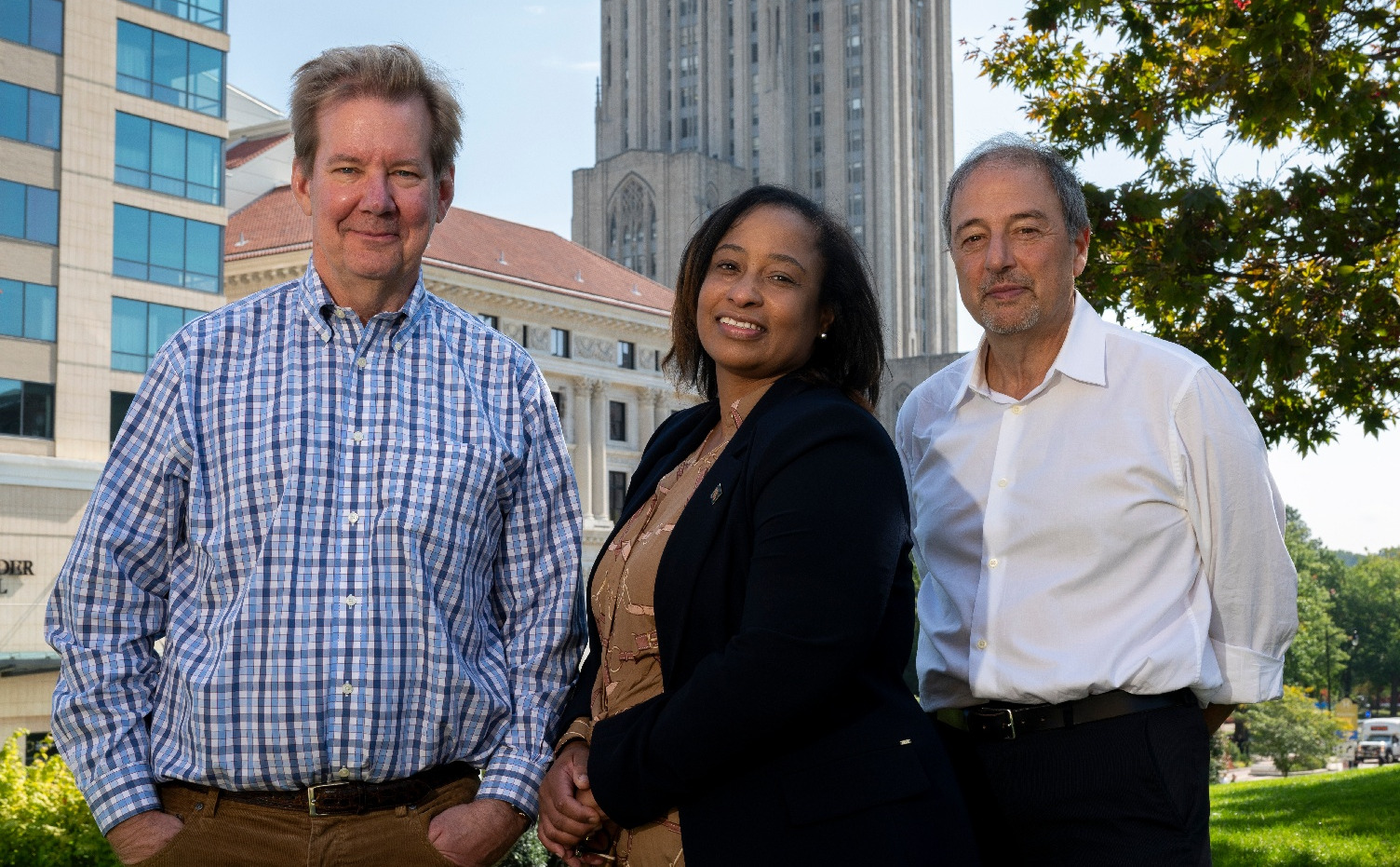Company Receives Clearance for Phase I Safety Trial
for Treatment of Macular Degeneration.
Alan Wells and Cecelia Yates have collaborated on and off for nearly two decades at the University of Pittsburgh developing a class of synthetic proteins that act as switches to turn off the wound healing process.
Now, after nearly 7 years of pre-clinical work, the company co-founded and launched from their research has entered a Phase 1 clinical trial with its therapy for the treatment of age-related macular degeneration, also known as wet-AMD.
“To finally be able to go into patients after a careers’ worth of work is both exhilarating and terrifying,” said Wells, professor of pathology. “It’s like being a performer. You practice and practice, and now you finally get to go on stage.”
Wet-AMD affects nearly 2 million Americans with about 200,000 new diagnoses each year and is the leading cause of blindness for elderly Americans.
“With this disease, once you start losing sight, it can deteriorate rapidly,” said Sean McDonald, CEO of Ocugenix, who licensed the technology from Pitt in 2017.
McDonald said the initial safety phase of the trial is expected to conclude in the late summer of 2024. If successful, he hopes for the second phase to commence soon thereafter testing the drug’s effectiveness.

Sean McDonald (left), CEO of Ocugenix, with co-founders Cecelia Yates and Alan Wells.
Wells, along with three post-doctoral fellows in his laboratory, had identified these signaling proteins responsible for ending the wound healing response, causing newly formed vessels to regress and for the fibrotic matrix to transition.
Together with Yates, associate professor of health promotion & development at the Pitt School of Nursing, they showed that these proteins worked to prevent scarring. Yates, in collaboration with colleagues at Tuskegee University, then began development of targeted peptide fragments of these proteins.
As they considered potential applications of their discoveries, they teamed with the former chair of UPMC Department of Ophthalmology, Joel Schuman, and assistant professor Ian Conner. Schuman and Conner directed them toward patients suffering from eye diseases that result from abnormal blood vessels growth and excessive wound healing, called fibrosis.
Like Wells, Yates is both eager and anxious for the clinical trial to commence.
“This is a major milestone toward achieving impact,” she said. “To know that something that you have worked on so carefully and for so long might actually makes a difference in somebody’s life is incredibly humbling. You want it to work in people the way it does in pre-clinical models, but you also know that there is no way to be certain that it will. Time will tell.”
Prior to launching Ocugenix, McDonald enjoyed success as co-founder of Pittsburgh-based Automated Healthcare Inc, the first robotic medication dispensing system for hospitals, which was sold to pharmaceutical distribution giant McKesson Corp. He also had a leadership role in many other Pittsburgh Technology companies including Precision Therapeutics, Aethon, and Respironics.
As he scouted for new opportunities in subsequent years, he was captivated by the potential for the Pitt-developed proteins to meet a critical therapeutic need in a way superior to existing blockbuster therapies.
McDonald estimates the size of the market for wet-AMD treatment at $13 billion. The market-leader is called Eylea, from Regeneron, which was approved by the FDA in 2011, and currently has more than $9 billion in annual sales.
Eylea does a good job of stopping the build-up of fluid in the eye, he said, but does not address the development of fibrosis which develops in the vast majority of patients with advanced disease.
“We have the opportunity to fundamentally change how this disease is treated,” he said, “impacting millions of people around the world.”
While the development journey for Ocugenix has taken several years, this is not atypical as the average drug takes between 10 and 15 years.
“We have been very efficient in our use of capital. We have raised more than $10 million to get to this point,” he said, which is many multiples less than the current market leaders spent to get to the same point of development. “We have done upward of 15-different animal studies to verify the effectiveness of these compounds. We have not seen any dose-related safety issues in any of the doses we intend to take to the clinic.”
The company is currently raising a new investment round to fund the second phase of the trial.
“Now is when things start to get exciting,” McDonald said. “The science is strong, and while there is no guarantee of success, we feel good about the path we are on and the people who have got us this far, and ultimately the people we hope to help realize their vision.”
If you are a Pitt innovator or innovation team ready to commit to launching a startup based on your innovation, the Pitt Ventures Startup Academy can provide the just-in-time support you need to achieve critical milestones on the way to launching a company in 12-18 months. Learn more.